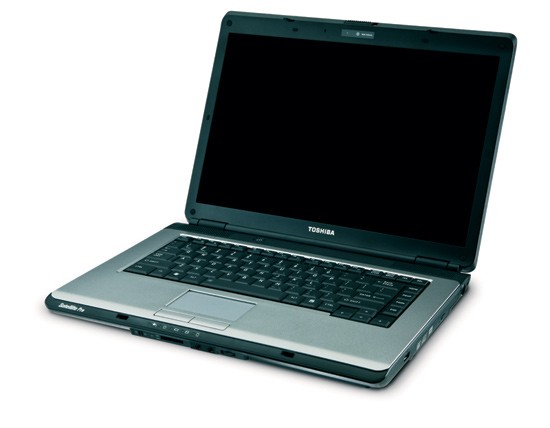The secret of the £299 laptop - how do they do it?

Laptops are now a commodity item. A fully featured notebook for £299? Windows Vista Home Premium may not be common, but most £299 machines are extremely capable, with 1GB of memory and reasonable hard-drive sizes in many cases.
So how do they do it? And can prices get any lower? Shahid Azeem, Managing Director of ArcomIT, doesn't think we'll get a £199 notebook any time soon. "Realistically, the amount of material and margin involved will not be possible to go to this," he explains.
We spoke to a leading laptop vendor last year who expressed concern at the way the laptop market was going even then; saying the margin available was "very tight." And as far as reducing the price point further? "It's likely to bottom out."
Margins are certainly getting less. "I suppose its difficult for manufacturers to keep bringing prices down when the technology is forever improving," says Brett Critchley, managing director of reseller Orchid. "Margins on laptops for VAR's (value-added reseller) such as us are very low, we are lucky to be able to make more than 4 per centon most makes." Azeem agrees. "Soon the margins will be so low the reseller would be lucky to make 2-3 per cent as box shifters," he says.
Lost leaders and higher prices
"Laptops at lower than £299 are not a sustainable market – you may see them as a loss leader or as a short term promotion," says What Laptop Editor Mike Browne. "Bargain laptops have their place – if you look at those being given away with mobile broadband tariffs, for instance. However, the prices of these laptops are being subsidised by the operators. No manufacturer can afford to offset the cost of the machine long term simply for market share."
As Browne says, many manufacturers can only afford to sell laptops at £299 because they are loss leaders for retail or are sold on as last-generation stock. "In reality there aren't as many laptops at £299 as you'd think," he continues and points out that many companies are actually attempting to drive prices up, even more so since the advent of the netbook.
Sign up for breaking news, reviews, opinion, top tech deals, and more.
"Manufacturers are aggressively pushing against this price point and trying to draw prices up,"adds Browne."We've already seen Samsung and Sony refusing to sell this cheap, for fear it will damage their brand, while the likes of Acer and Toshiba are also placing heavier focus on higher-specified machines." Indeed, Acer and Toshiba have been names associatedselling many laptops atthe £299 price point - many in retail promotions. Indeed, retail is one way in which future price drops may be engineered. Retailers – especially the UK's big guns – have immense power over market prices.
Loss of quality? And what of the netbook?
The only alternative is that we'll start to see a serious reduction in the quality of the notebooks we buy and use. Indeed, some think it's happening already. "Yes, the quality of laptops is suffering as the build quality has been cut considerably," continues Azeem.
But what about the hardware? How will it evolve over the coming months? "It's difficult to see where the boundaries of 'netbook' and 'laptop' are drawn now – below £300 or above? Flash drive or hard disk? Less than 10in screen or over," says Chris England, brand director of Ability.
It's also a question of whether the consumer is now sucked in by the netbook, too. "Dell has entered the field with their new netbook, the Inspiron Mini 9, at £299 – which is a 'premium' price for a netbook, and pushes up to the lower prices of the laptop sector," says England. "In our opinion, the definition of laptop [versus] netbooks doesn't directly interest consumers. If the current drive by mobile broadband retailers and operators turns netbooks into the top selling retail 'laptops' over the next year, as is likely, then consumers will be demonstrating their acceptance of the 'spec.'"
Dan (Twitter, Google+) is TechRadar's Former Deputy Editor and is now in charge at our sister site T3.com. Covering all things computing, internet and mobile he's a seasoned regular at major tech shows such as CES, IFA and Mobile World Congress. Dan has also been a tech expert for many outlets including BBC Radio 4, 5Live and the World Service, The Sun and ITV News.